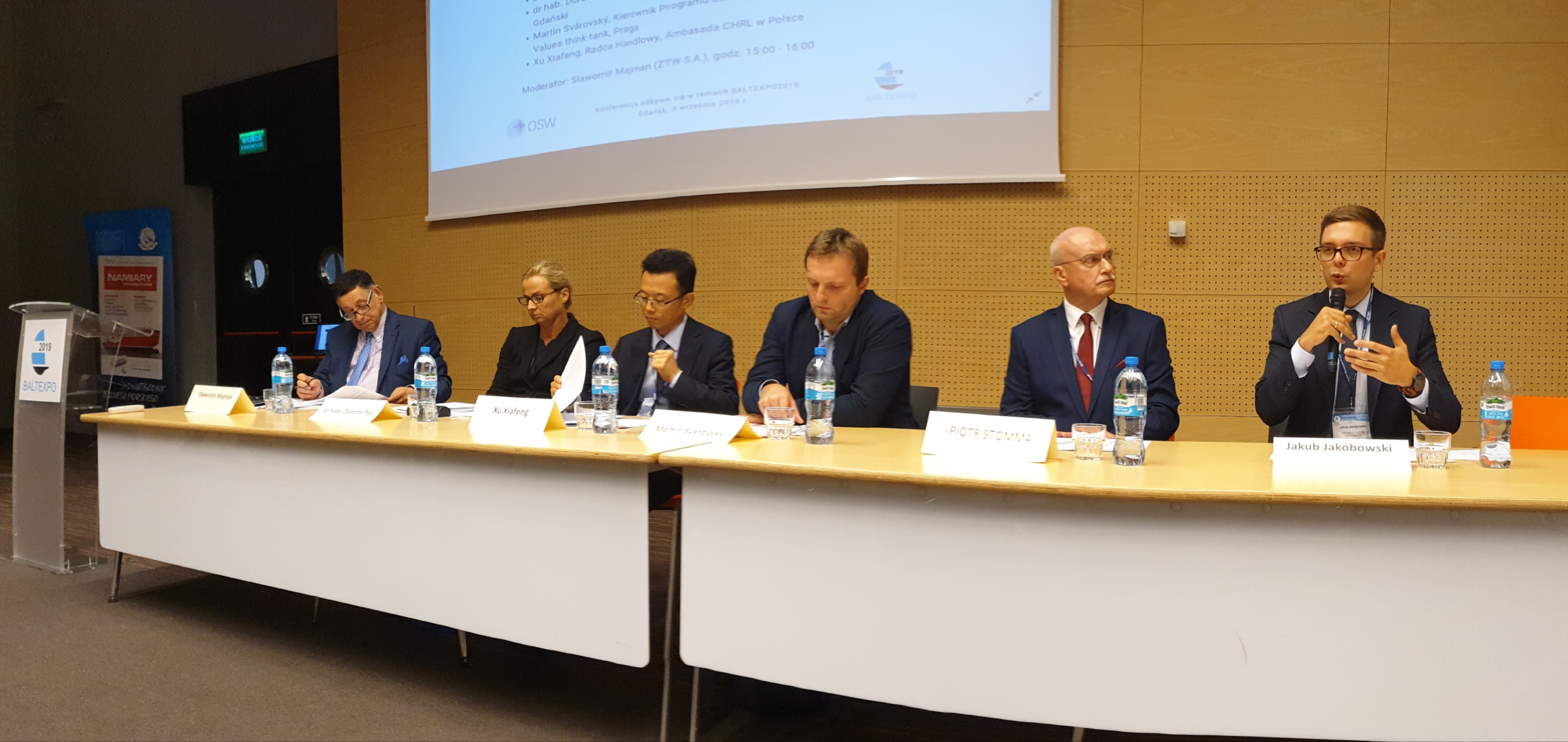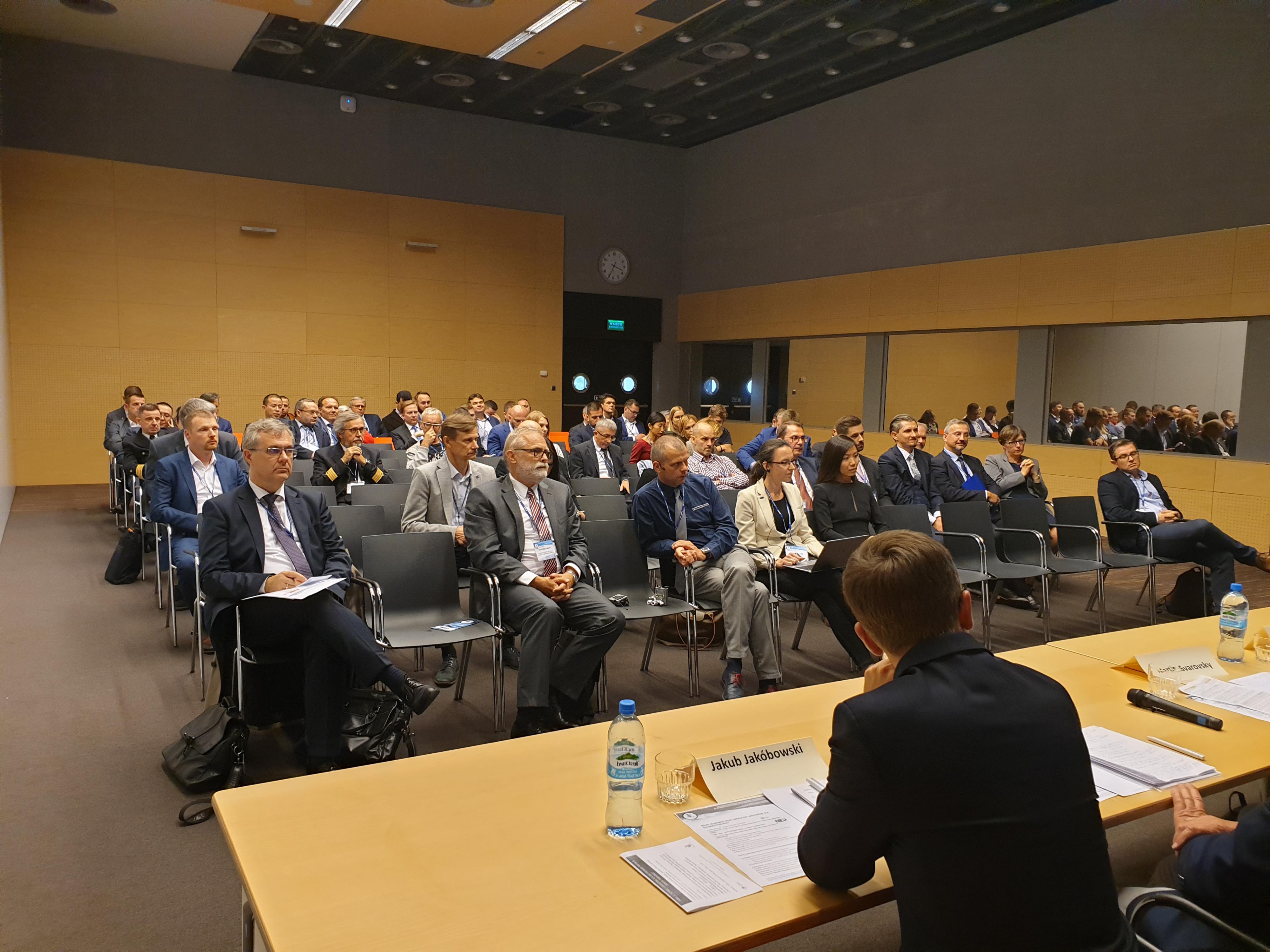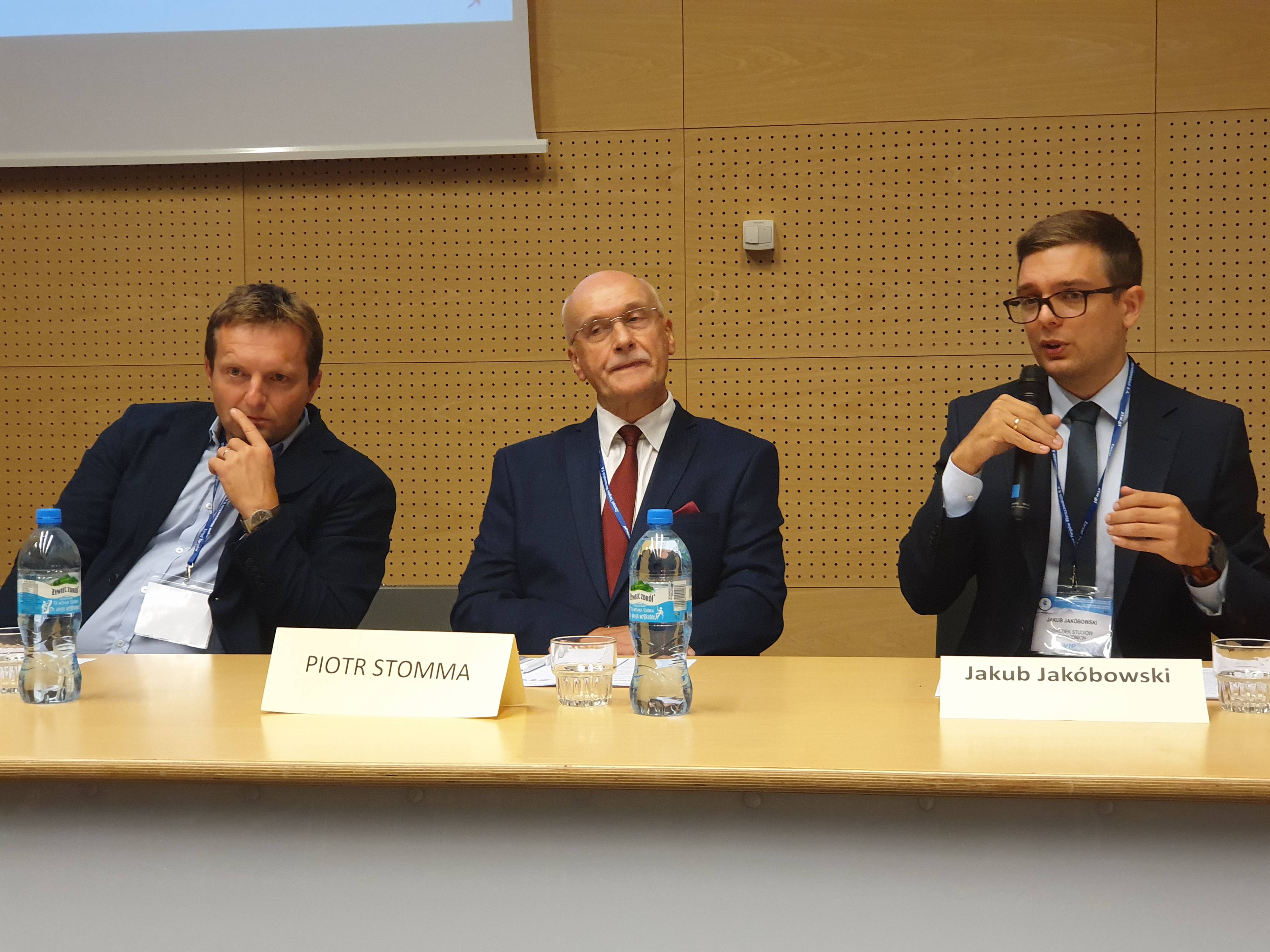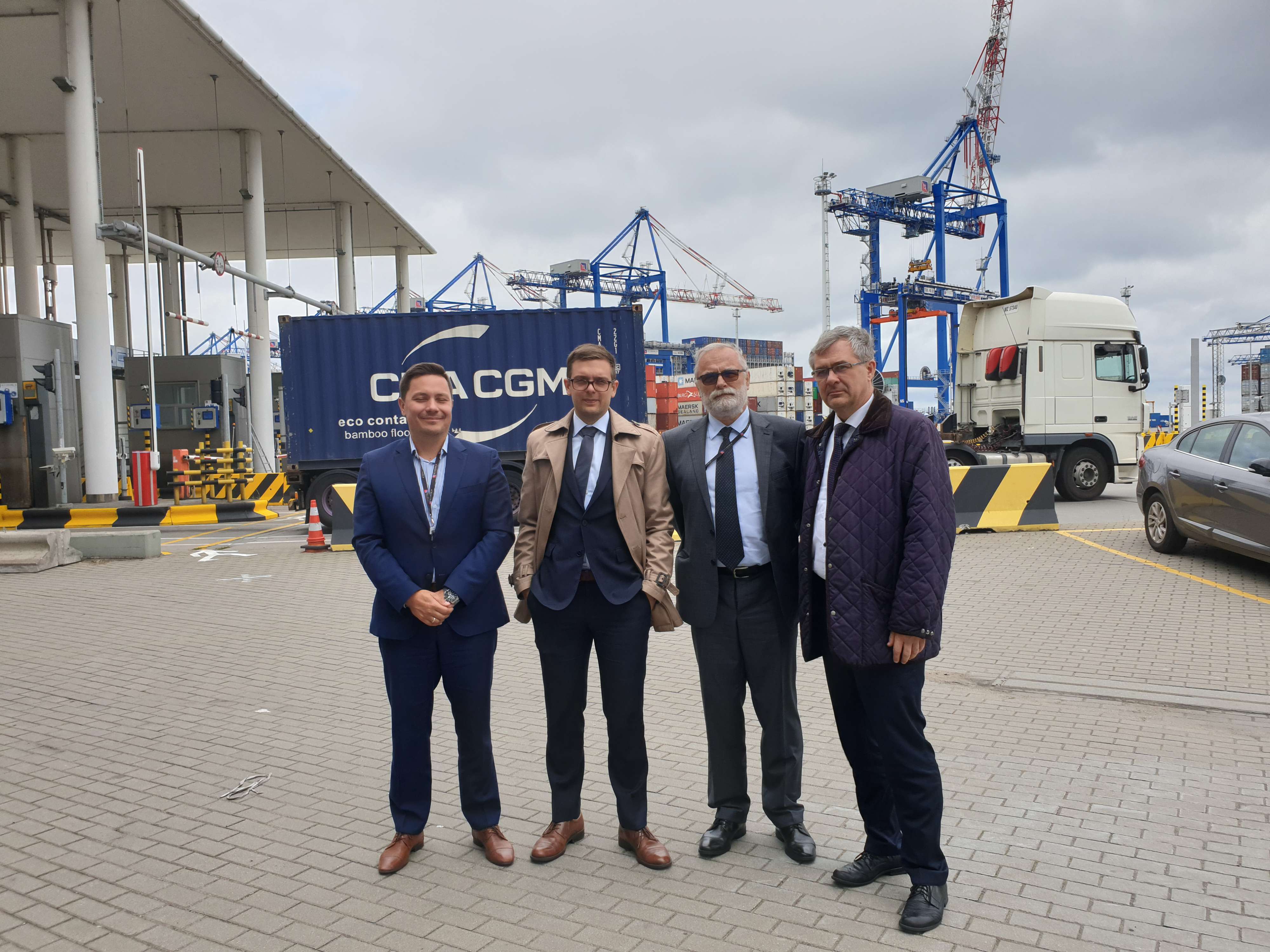The conference ‘The New Silk Road: an opportunity or a threat to Polish ports?’ was held on 9 September 2019 in Gdańsk as part of the BALTEXPO International Maritime Exhibition. The conference, during which the political and economic impact of the Chinese initiative towards Central Europe was discussed, was co-organised by OSW.
The participants of the conference exchanged views during two panel discussions concerning the political aspect of the Chinese initiative and the impact of the Maritime Silk Road on the transport and logistic sectors in Central Europe. The participants included diplomats from Poland and China, representatives of analytical centres and business circles (ship owners, port operators), and of intermodal transport, logistics and shipping from the Central European area.
The Maritime Silk Road ‘umbrella’ initiative, which was announced in Jakarta in 2013 by the Chinese leader Xi Jinping, includes a plan for supporting the expansion of Chinese companies in the areas of maritime transport, port infrastructure and shipping. Chinese companies are investing in numerous European ports, for example, in Antwerp, Valencia and Piraeus in Greece; China’s largest ship owners are developing their operation in the latter. Another of China’s goals is to boost economic co-operation in Eurasia, which generates new streams of goods in maritime trade between the countries located along the New Silk Road.
As the panellists pointed out, this new dynamic is contributing to the growing position of Polish ports, which are increasingly involved in European trade with China, in which until recently the largest ports of Northern Europe played the predominant role. The new streams of goods are also stimulating the development of north-south corridors. Ten to twelve intermodal railway freights are dispatched weekly from the Czech Republic and Slovakia to Gdańsk, to a great extent as part of trade with China. Other regional ports, such as Slovenia’s Koper, Romania’s Constanţa and the Greek port of Piraeus (owned by China), are also competing for the status of the ‘sea gate’ to Central Europe.
One essential conclusion from the conference which its participants highlighted is the need to develop land transport corridors in Central Europe as a land support base for the ports, including road & railway connections and logistic infrastructure. The opportunities to strengthen Central Europe’s position in the trade between Europe and Asia are being enhanced, owing to the rapidly developing China–EU connections which make it possible to offer new logistic solutions combining maritime and railway transport.








